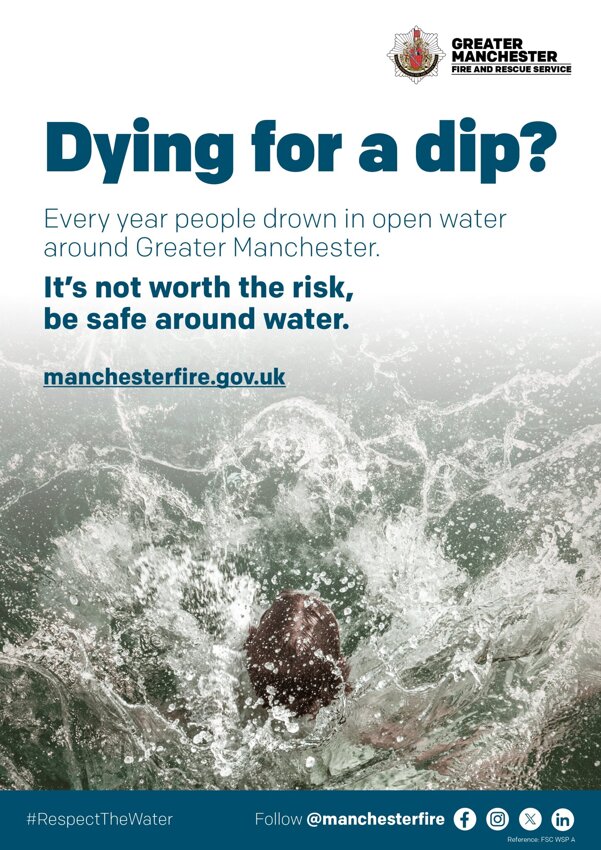
Water safety advice
As temperatures rise, it’s tempting to cool off with a swim in a river, canal, lake or reservoir. However, we are regularly called to rescue people who have got into trouble in the water.
What are the dangers of swimming in open water
• There is no supervision.
• The cold water temperature can claim your life in minutes - even if you are a strong swimmer.
• It’s difficult to estimate the depth of the water. It may be much deeper or much shallower than expected.
• There are often no suitable places to get out of the water due to steep slimy banks or sides.
• There is no way of knowing what lies beneath - there could be weeds, pipes, shopping trolleys, sharp metal or broken bottles.
• Swimming in open water can lead to a variety of serious illnesses.
• There may be hidden currents. Flowing water or swimming in the sea can be especially dangerous.
• Alcohol and swimming don’t mix – perception and capability are both affected by drinking.
What should you do if you get into difficulty
However you end up in the water, if you end up in difficulty, float to live:
• Tilt your head back, with ears submerged.
• Relax and try to breathe normally.
• Move your hands to help you stay afloat.
• It’s okay if your legs sink, we all float differently.
• Spread your arms and legs to improve stability.
If the effects of cold water shock pass and you regain your calm, take the next step to safety. This could be swimming to a safe place, calling for help or holding onto something to help you float.
Make sure your loved ones know what to do if they get into difficulty too.
Help them learn how to float.
Respect the water
• Swim somewhere safe - the swimming baths.
• Obey the warning signs around reservoirs, lakes, canals, rivers and at the beach.
• Value your own safety first – jumping into the water for fun, or to rescue pets or belongings, can be highly dangerous.
• Know what to do if you see someone in difficulty in the water – if there’s a lifeguard on duty you should alert them or dial 999 and ask
for the fire service if inland or the coastguard if by the sea. Remember ‘call, tell, throw’ (see back page for more details).
• Enjoy organised water sports in a safe environment - with the correct equipment and a qualified instructor.
If you see someone in difficulty in the water remember ‘call, tell, throw’:
• Call 999 and ask for fire if inland or the coastguard if by the sea. Explain your location clearly and describe any landmarks.
• Tell the struggling person to try to float on their back.
• Throw them something that floats.
For further information on water safety visit:
• Royal Life Saving Society UK
• Royal Society for the Prevention of Accidents
• Royal National Lifeboat Institution
• Royal National Lifeboat Institution
• National Water Safety Forum
#RespectTheWater




.png)
